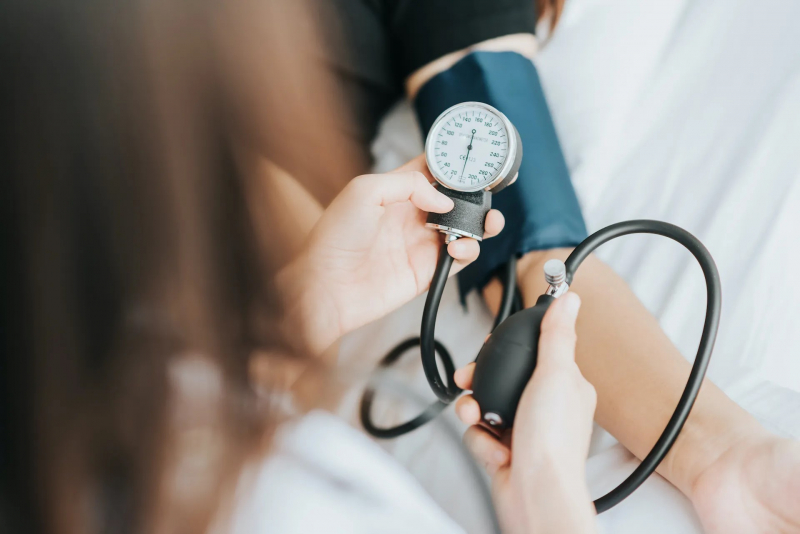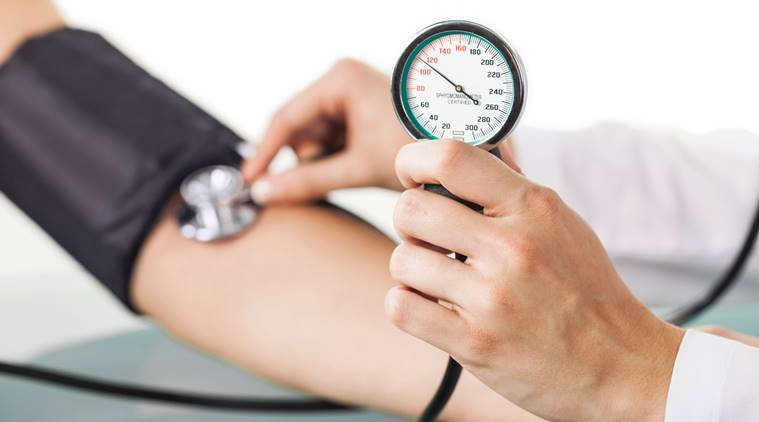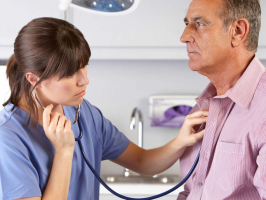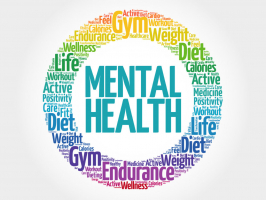Top 10 Common Health Risks Related to Obesity
A person who is obese has an unhealthy amount of body fat or a badly distributed body fat. People with obesity have a body mass index (BMI) of 30 or higher. It ... read more...raises the risk of a number of major health issues. Read in to find out some of the common health risks related to obesity.
-
When your blood sugar levels are high, type 2 diabetes develops. It is a disease with enormous potential to cause ill effects on the body in the long run. This can eventually result in other health problems like heart disease, nerve damage, stroke, kidney disease, and vision issues.
Obesity increases your risk of developing diabetes, which is characterized by an excess of glucose (sugar) in the bloodstream. Diabetes also gets worse quickly in people who are obese. In comparison to people who are at a healthy weight, those who are obese are around six times more likely to develop type 2 diabetes. If you have obesity, decreasing just 5 to 7 percent of your body weight and engaging in routine, moderate exercise may help you avoid or delay the onset of type 2 diabetes.

Type 2 diabetes 
Type 2 diabetes -
Obese people have a higher risk of developing heart disease. Obesity is linked to an increased risk of developing cardiovascular disease (CVD), especially coronary heart disease (CHD) and heart failure (HF).
The processes through which obesity raises the risk of CVD include modifications to body composition that may impact hemodynamics and change the structure of the heart. Moreover, the arteries that supply the heart with blood may develop fatty deposits over time. Obesity raises blood pressure, LDL cholesterol, triglycerides, and blood sugar levels over normal, all of which are risk factors for heart disease. A heart attack may result from narrowing arteries. A stroke may be caused by blood clots in narrow arteries.

Heart disease 
Heart disease -
There are numerous similar risk factors for both heart disease and stroke. When the brain's blood flow is disrupted, strokes occur. A stroke can damage brain cells and result in a variety of diseases, including changes in thinking and reasoning skills, challenges with speech and language, weak muscles, and speech and language impairment.
It is evident that having a stroke risk increases with weight. Numerous studies have found that the risk of stroke increases by 5% for every unit's higher body mass index (BMI). According to this, a person with a baseline BMI of 20 and a BMI of 30 has a 50% increased risk of stroke. Furthermore, a 2010 review of 25 studies with almost 2.3 million participants found that obesity increased the risk of stroke by 64%.
Stroke 
Stroke -
Sleep apnea is a relatively common disorder in which people experience disrupted breathing while they are sleeping. In obstructive sleep apnea (OSA), the most common type of sleep apnea, disruptive breathing occurs because of a narrow or blocked upper airway.
A increased likelihood of developing sleep apnea occurs in overweight and obese people. This occurs as a result of the airway becoming smaller due to their propensity to have more fat accumulated around the neck. Snoring and trouble breathing at night may be brought on by a smaller airway. Reduced neck fat and a lower risk of sleep apnea can both be benefits of weight loss.

Sleep apnea 
Sleep apnea -
The body needs more nutrition and oxygen to support more fat tissue. The increased fat tissue will require your blood vessels to pump more blood. So, in order to pump blood throughout the body, your heart will have to work even harder. Your arteries are now under additional pressure due to the increased blood flow. High blood pressure, sometimes known as hypertension, refers to this additional pressure. Your heart and arteries may eventually become damaged as a result of excessive blood pressure.
Hypertension can be brought on by obesity or made worse if you already have it. According to an analysis from 2020, obesity causes 65 to 78% of primary hypertension cases. Having more fat tissue in the body might result in complex changes that work together to either cause or worsen hypertension.

High blood pressure 
High blood pressure -
Non-alcoholic fatty liver disease (NAFLD) is the term for a range of conditions caused by a build-up of fat in the liver. It's usually seen in people who are overweight or obese. Early-stage NAFLD does not usually cause any harm, but it can lead to serious liver damage, including cirrhosis if it gets worse.
When extra fat accumulates in the liver, this takes place. The liver may be harmed by the extra fat, which can also result in cirrhosis and the growth of scar tissue. However, liver failure can develop as a result of fatty liver disease, which usually has no symptoms. Losing weight, becoming active, and cutting off alcohol are the only ways to treat or manage the disease. An increased risk of serious health issues including diabetes, high blood pressure, and kidney disease is also linked to having high levels of fat in your liver.

Liver disease 
Liver disease -
Bile is a substance that the gallbladder stores and transports to the small intestine during digestion. Bile helps in the digestion of lipids. Your chances of developing gallstones rise if you are obese. In biliary diseases, obesity and overweight have been known as major risk factors for gallstones.
Bile can accumulate and harden in the gallbladder, causing gallstones. Gallstones can develop in obese people because they may have large, inefficient gallbladders or higher cholesterol levels in their bile. Surgery may be necessary for gallstones, which can be painful. Gallstones may be avoided by eating a diet rich in fiber and good fats. One further help is to stay away from processed grains like white rice, bread, and pasta.

Gallbladder disease 
Gallbladder disease -
You might be surprised to know that obesity and being overweight are associated with an increased risk of developing 13 different types of cancer. These cancers make up 40% of all cancers diagnosed in the United States each year.
The link between fat and cancer is less obvious than it is with other diseases like heart disease and stroke because cancer is a multi-disease. However, obesity can increase your risk for some cancers, such as cancer of the uterus, cervix, endometrium, and ovaries, as well as breast, colon, gallbladder, pancreatic, kidney, and prostate cancer. According to a population-based study, being overweight or obese in the United States was thought to be linked to around 28,000 new cases of cancer in men and 72,000 in women in 2012.

Certain cancers 
Certain cancers -
Obese or overweight pregnant women are more prone to develop high blood pressure, insulin resistance, and blood sugar levels. The risk of complications during pregnancy and delivery may rise as a result, including gestational diabetes, preeclampsia. needing a cesarean delivery (C-section), blood clots, heavier bleeding than normal after delivery, premature birth, miscarriage, stillbirth, defects of the brain and spinal cord,...
In one study, more than 60% of pregnant women with a BMI of 40 or higher experienced one of these problems. To prevent the health risks mentioned above, you may want to begin a weight management plan if you are obese or overweight if you are thinking about having a baby.

Pregnancy complications 
Pregnancy complications -
Depression affects a lot of those who are obese. According to numerous studies, there is a direct link between obesity and serious depressive disorder.
Discrimination based on a person's physical size is something that people who are obese may usually experience. This may eventually result in depressive or low self-esteem feelings. Many advocacy organizations are battling to end body size discrimination today, like the National Association to Advance Fat Acceptance (NAAFA). These groups offer chances to participate in the fight against this discrimination. Ask your doctor to recommend a mental health counselor if you have obesity and are experiencing symptoms of depression.
Depression 
Depression































